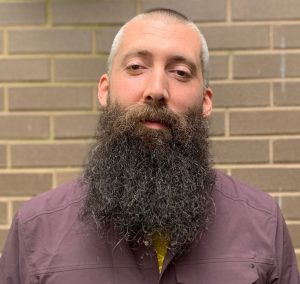Magic, Healing and Religion Virtual Workshop
Online Event
26/05/2021, 10:00 am - TO 26/05/2021 - 4:00 pm
Organizer: Department of Religious Studies and Department of Family Medicine
 McMaster logo
McMaster logo

Online Event
26/05/2021, 10:00 am - TO 26/05/2021 - 4:00 pm
Organizer: Department of Religious Studies and Department of Family Medicine
This workshop proposes an interdisciplinary and inter-religious approach to healing in religious traditions. Religious healing can be syncretic between traditions, relegated to the margins of official religion, or use non-mechanical logics to address imbalances of body, spirit, and social identity. By comparing religions, and by fostering dialogue between different fields, we hope to understand the relationship between religion, science, magic, and healing.
The workshop will be conducted virtually by Zoom and all are welcome!
Keynote Address Abstract:
Healing Is Believing: Medical Magic between Science and Religion
It is well known that premodern Western medicine, Islamic, Jewish and Christian, was primarily Galenic and Avicennan. Less well known is the fact that it was also often occult. As a rule, physicians and pharmacologists sought to extrapolate from visible to nonvisible data, harness mind-matter and mind-mind interactions and activate cosmic correspondences in diagnosing and treating disease. Other occult sciences like alchemy, astrology and geomancy were routinely utilized as well. Of course, most Western and Westernized physicians today scorn the occult as religious superstition, hence fundamentally opposed to science. Yet they still acknowledge the placebo effect—a form of magic by any premodern definition—as one of the most powerful in modern medicine, and certain forms of “alternative medicine” such as acupuncture and homeopathy are now insurable. To help decolonize the historiography of premodern medical traditions, Western or otherwise, I propose that we dispense with outmoded nineteenth-century materialist cosmology to reconceive of modern medical practice as sometimes technically occult too.
Keynote Address Speaker Bio:
 Matthew Melvin-Koushki (PhD Yale) is Associate Professor and McCausland Fellow of History at the University of South Carolina. He specializes in early modern Islamicate intellectual and imperial history, with a philological focus on the theory and practice of the occult sciences in Timurid-Safavid Iran and the broader Persianate world to the nineteenth century, and a disciplinary focus on history of science, history of philosophy and history of the book.
Matthew Melvin-Koushki (PhD Yale) is Associate Professor and McCausland Fellow of History at the University of South Carolina. He specializes in early modern Islamicate intellectual and imperial history, with a philological focus on the theory and practice of the occult sciences in Timurid-Safavid Iran and the broader Persianate world to the nineteenth century, and a disciplinary focus on history of science, history of philosophy and history of the book.